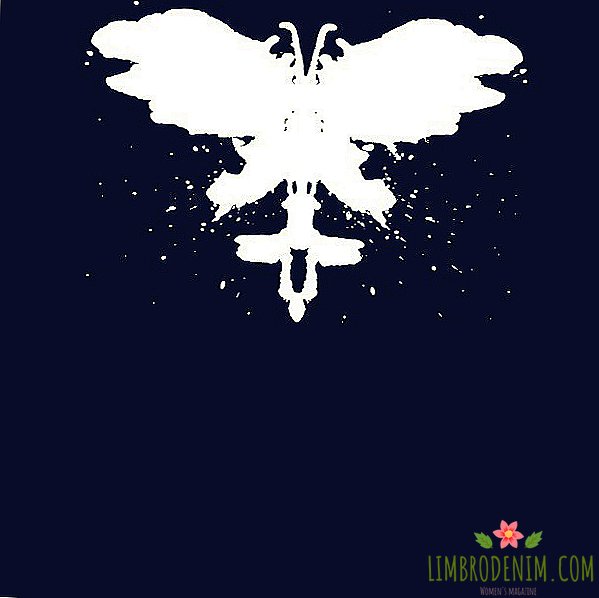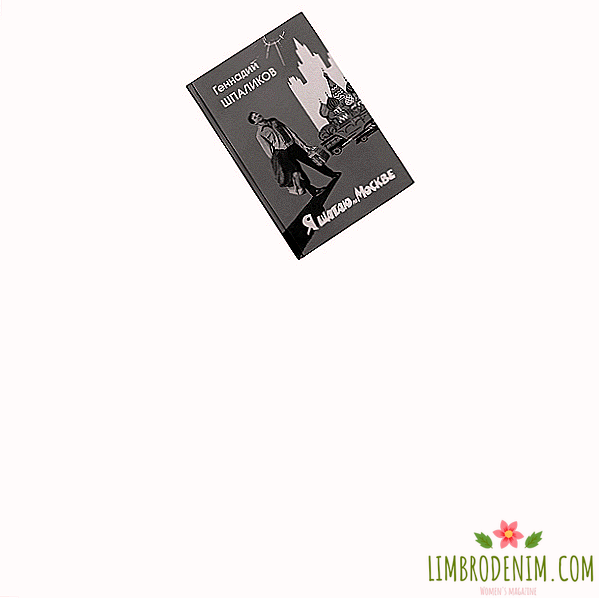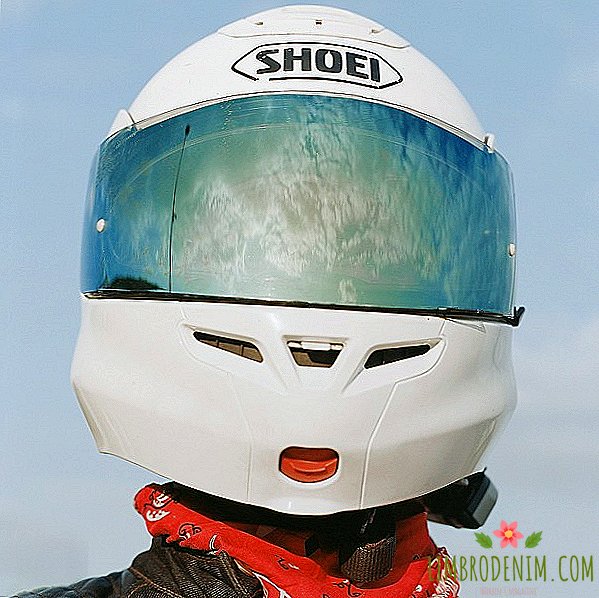Film critic Ksenia Rozhdestvenskaya about favorite books
IN BACKGROUND "BOOK SHELF"we ask journalists, writers, scholars, curators, and other heroines about their literary preferences and publications, which occupy an important place in their bookcase. Today, film critic Ksenia Rozhdestvenskaya shares her stories about favorite books.

 I learned to read, looking at the cubes with letters. I was about three years old. I remember that I made up a long locomotive of cubes: on the first was a bus, then a mushroom, a clown, a hedgehog, and somewhere at the end there was a cube with balloons. And suddenly I realized that there were no clowns and balls, but there were only letters that adults had repeated to me so many times. My beautiful steam train was a long meaningless word. In the evening, my mother boasted to her father that I had learned to read. "At this age? Let him prove it," he slipped the newspaper to me. “True,” I read. "Well, you could have remembered it. And read this title here." "On-reunion-re-she-no-yam ..."
I learned to read, looking at the cubes with letters. I was about three years old. I remember that I made up a long locomotive of cubes: on the first was a bus, then a mushroom, a clown, a hedgehog, and somewhere at the end there was a cube with balloons. And suddenly I realized that there were no clowns and balls, but there were only letters that adults had repeated to me so many times. My beautiful steam train was a long meaningless word. In the evening, my mother boasted to her father that I had learned to read. "At this age? Let him prove it," he slipped the newspaper to me. “True,” I read. "Well, you could have remembered it. And read this title here." "On-reunion-re-she-no-yam ..."
I read everywhere and always — on the street, at school, at a party — and at home I climbed onto a stepladder to get books from the upper shelves, and read while sitting on the stepladder. Read everything: "The Hobbit", Chekhov, Uigur fairy tales, "The Prince of Silver", "Peppi Longstocking" (and "Carlson" hated!), "Animal Life" Bram, collected works of Dumas, Conan Doyle, "Conduit and Shwambraniyu" Soviet fiction library, Olyapka, Strugatsky, Shakespeare Almanac, Gardner's Mathematical Leisure, Bradbury, Planet of the People Exupery.
"Alice in Wonderland" showed me that the meaning can jump from one word to another and words can crumble off the page. Bulgakov showed how you can cancel the space and time. I even started to rewrite “Masters and Margarita” by hand for a girlfriend living in another city, where in the early eighties it was impossible to buy any Bulgakov. Mayakovsky stunned me: he was so chatting between giant and small, between the universe and a grain of sand, that I physically felt this roll. At the age of fifteen I was confronted with Tsvetaeva's prose, and so far my internal censor reluctantly deletes the extra dash from all my articles. Tsvetaevsky "My Pushkin" became the first text in my life where I saw the author, not a hero. I had read memories before that, but no one else had such an “I” - an arrogant, huge, clear one.
Then, already at the university, I was given to read Nabokov, and it turned out that there are "I" and more. I have a very complicated relationship with Nabokov, I started “Dar” four times, four times I didn’t understand why and what it was, and then, at some very boring lecture on political economy (Nabokov would have appreciated), suddenly everything flashed, so since and burns. Now “Dar”, like “The Master and Margarita” or some “School for Fools”, is a common place, these books are somehow not customary to love. It is necessary to love something undervalued, rare, which no one understands. And I love it. I live in these texts, re-read them, and each time it turns out that it is they who “re-read” me, reassemble again.
The lyrics should have a big world feeling. A good text is a space with a complex topography, you enter a good book and you feel that there is not only this page in it, but also many rooms, streets, oceans. You feel the drafts. Nabokov has rooms, corridors, doors, mechanisms - and suddenly you go out into the void, where there is only wind. "School for fools" leads along a narrow path, the leaves block the view, and you do not know what's next. Sorokin's texts are a gigantic lake into which all Russian literature is frozen; it is already dusk, dark, and only a lonely author cuts through this rink on skates. In a mediocre book - only letters, at best, one curve room in which characters shrivel.
There was a period when I read only poems. The yellow volume of Voznesensky knew by heart, Frost lulled her nephews with poetry, “Brodsky’s“ Part of Speech ”drove with her until the book fell apart. But for the first time, Pushkin really read, ashamed to say, only after the comments of Lotman and Nabokov. In general, I love books on literature and film studies, the adventure of thought is the most interesting adventure.
My diploma says that my specialty is “literary criticism”. My mother was a literary critic, and I understand that criticism is very subjective. Everyone starts to praise something, and after a week the spirit of contradiction works, and everyone who did not have time to praise, will rush to scold the same book. Therefore, I only read criticism after the fact, I listen to someone else's opinion only in order to understand something about the person who speaks, and not about the book. And therefore, for me, there are no perehvalennyh or undervalued authors: all those who today are praised, in fact, underestimated, not really read.
Literature, fiction is the most striking thing that was created by man. A completely unnecessary thing, not carrying any useful information, but canceling time, space, body. I always read, and I read too little. More often non-fiction because fiction has become too predictable, too straining, like a genre movie. After the first fifty pages, everything is usually clear: what will happen to the characters if the author wants to be unique, what if he wants to do everything by the rules, what if he watched too many TV shows.
There are maybe three or four authors who completely turn me off from life. If a new book comes out for them, I stop working and generally exist until I read it - this is Vladimir Sorokin, Stephen King, China Myevil. When I want a good fiction, and Sorokin did not write anything new, I read comics. "The Guardians" of Alan Moore in general, I consider one of the best novels of the twentieth century. And so often I read books on the history of everyday life, the history of cinema, diaries.
If we talk about the books from which I am composed, then I am afraid there will be a terrible mess from Nabokov, Tsvetaeva, Shklovsky, Borges, Bulgakov, Lotman, Harms, Thomas Mann, Stephen King, Pushkin, Vvedensky, Philip Dick, William Pokhlebkin, Gardner’s Mathematical Leisure, Werner Herzog’s diaries, Sawa Brodsky’s illustrations to Shakespeare, the killer images of A.W. Traugot from Andersen’s two-volume book, flickering Alice from Kalinowski’s illustrations. And between this, clowns with balls will run and shout "Na-chu-re-ne-y-yam ...", because the cubes with letters and old Soviet newspapers have not gone away either - they remained inside.

Charles de Coster
"The Legend of Tyla Eulenspiegel and Lamma Goodzek"
The most favorite book from childhood, and one of the most terrible. After it, I perceive history as a wide, dark road, covered in mud, and Anger, Pride and others wander along it, and it goes on forever, and it is happening now. Oddly enough, the same space in Tolkien's Lord of the Rings.
Ray carney
"Cassavetes on Cassavetes"
For me, Cassavetes is the best director ever to make a movie. I probably bought it in New York, but honestly I don’t remember, it seems to me that she appeared at the very moment when I first saw Cassavetis. This is the only book in my library with so many bookmarks. Most of the time I buy books for work electronically, but this one is not only for work, but also for love. A similar book is Herzog on Herzog.
Werner Herzog
"Conquest of the Useless"
Notes of another one of my favorite directors, made during the filming of "Fitzcarraldo" - one of my favorite movies. Notes are not about cinema, but about water and jungle, giant moths, airplanes, rage, emptiness, dead beetles, monkeys, Klaus Kinski and a boa constrictor, on whose head Herzog pours water. Pure delirium, madness textbook; I read this book when I stop dreaming. After her dreams are no longer necessary. Similar books are poems by Vvedensky and Ubiq by Philip Dick.
China Myeville
"Embassy city"
Mieville wrote all the books that I wanted to write, so I read it with envy. This novel, it seems to me, is the best with him; it describes the role of metaphor in war (the main character is a girl who once was a metaphor). Strangely enough, my familiar professionals do not like this book: the biologist noted that winged individuals could not appear on a planet with such an atmosphere, a linguist couldn’t think that the invented language was redundant.
Jorge Luis Borges
"Collection"
When I first started writing about movies, I had a pseudonym from Borges. "Emma Tsunts" - a story about a girl who killed a man by faking a rape. The story ends with the words: "Only circumstances, time, and one or two proper names did not correspond to reality." Approximately the same way, my Emma Zunts wrote articles: she was silent about something, changed something, got her way, then she called the police herself.
Stephen King
"The Drawing of the Three"
“The Dark Tower” is not a very good novel, especially towards the end, but this part, when the hero assembles a team, is perhaps the best that King has. Actually, in all the books I love this particular piece, where the team has not yet been fully assembled, no one has yet died, the goal is still foggy. The main thing is to read the original, in Russian King is completely killed.
Rem Koolhaas
"New York is beside itself"
I saw this book in Venice at the Biennale, I opened it, read a couple of paragraphs and was delighted. I love New York very much, and this book talks about the willfulness of the city, about the principles of building space, and about the logic of madness. I bought it, and when I sat down to read at home, it turned out that it was not in English, as it seemed to me from admiration, but in Italian. I once started to learn Italian, but I don’t know enough to read about madness. Fortunately, there is a Russian translation.
"LEF" and "New LEF"
This is from the father’s library - Left Front Art magazines with articles by Mayakovsky, Rodchenko, Vertov. Rodchenko said that we must photograph from the top down or from the bottom up, and when everyone starts to shoot the same way, "we will shoot diagonally." This told me a lot about the stages of development of any cultural project. From similar books I can name the recently published three-volume book "Formalism".
Sergey Eisenstein
"Featured Articles"
I bought this volume in 2005 in the "Falanster" store; they sold books damaged by the explosion and fire. Eisenstein blackened back cover. I already perceive his articles as a detective, and with a burnt cover this is a post-apocalyptic detective story.
"What are we being beaten for? Neofuturism"
Also a book from the father’s library, a collection of poems and drawings by the neo-Futurists of 1913, with a preface in which “Already the sky breathed in the fall” is compared with the lamentations of the village woman: “I already shook, I already dropped it. After that, I realized that criticism is very subjective. I still remember some poems from there: "A sad-scarlet sunset / I looked in the face, / I sat by the window / and ate an egg."
William Pokhlebkin
"Entertaining cooking"
The first book in my life, which explained that there are some general rules to which everything obeys. I adore cooking, I read and read the cooking books all the time, and only I comment on them out loud very emotionally: "What is he doing there? This is stupid!" - as if reading some Odyssey.




